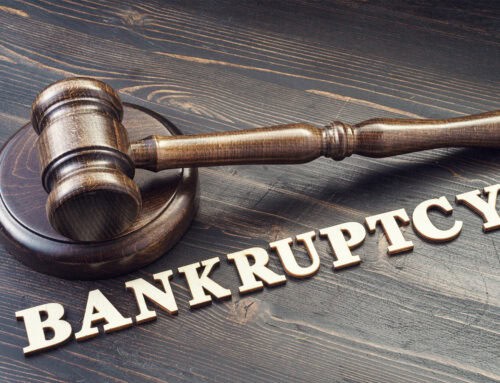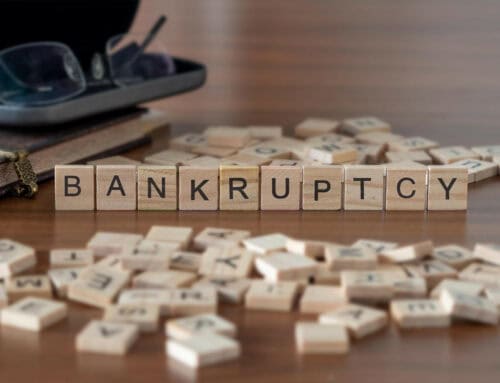Life After Bankruptcy: A Fresh Start
There can be plenty of life after bankruptcy. For example, you can start right away on rebuilding your credit and improving your credit score. Make sure to keep all of your bankruptcy paperwork, though. You may need it when you apply for various types of loans or in case collection agencies seek debts that the bankruptcy proceedings discharged.
1. Create an Emergency Fund
An emergency fund can help you avoid financial stressors in the future. It would ideally cover three to six months’ worth of living expenses. You may need a year or even longer to save this amount of money, but the investment is worthwhile. If an emergency such as a job loss or surprise car repair occurs, you won’t have to borrow money.
To help with the emergency fund, create a budget that you can stick to. Wait to get a credit card if you envision problems with impulse buying.
2. Pay Bills on Time
A few things go into your credit score (sometimes called FICO score). Your payment history makes up the largest chunk, at 35%. Focus on paying your bills on time, and your credit score should start a steady climb upward.
Common bills that may remain after bankruptcy include a mortgage loan (they’re not always included in bankruptcies), utility bills, and cellphone bills. Budgeting apps and automatic payments can help you stay on top of these expenses.
3. Maintain a Low Credit Utilization Ratio
Another important element in your credit score is the amount you owe. To this end, try to keep your credit utilization ratio low. Credit utilization assesses your current debt as it relates to your available credit. A ratio of below 30% is good. If you have a credit card with a $2,000 limit, try not to charge more than $600 a month. Pay the card in full each billing cycle.
If you can keep the ratio lower than 30%, then great! The ideal would be no more than 10%.
Do note that the ratio involves revolving debt such as home equity and credit cards. It does not include car, mortgage, home, or personal loans. (These loans do affect other aspects of your credit score, though.)
4. Avoid High-Interest Offers
Payday lenders, title loan companies, and other entities that deal in high-interest loans may try to get your business. It may be tempting to work with them. Do not do it.
They represent risky ways to come up with money quickly. For example, with a title loan, you could end up losing your car and still owe money, and that’s on top of the high interest rates.
If you need money fast, explore a loan from relatives or assess the urgent need for the money. If the situation can wait a few months, you may be able to save up enough cash.
5. Watch for Credit-Repair Scams
Just as you should stay away from payday lenders and title loan companies, steer clear of credit-repair scams. Some credit repair companies are legitimate, but all companies must follow Credit Repair Organizations Act guidelines. A company is no good if it:
- Charges you before it does any work for you
- Vows it can get rid of negative but accurate data on your credit report
- Advises you to change your name so that certain details aren’t linked to your credit history anymore
- Suggests that you provide false data on credit or loan applications
Some of these can get you in legal hot water, and there are many other red flags. It is often easier to rebuild your credit yourself. It’s cheaper, too, especially since even legitimate companies charge for the service
6. Get a New Credit Card
A new credit card can help in rebuilding your credit. Focus on a few things:
- Keeping your balance low
- Paying balances off each month
- Exploring secured cards if you do not qualify for traditional cards
With a secured card, you pay a refundable deposit in the amount that is your credit limit. The card otherwise operates much like a normal credit card. After you’ve made payments on time and met other qualifying criteria, you may be able to move to an unsecured card with the same company.
7. Open New Accounts Strategically
New credit makes up 10% of a credit score, and credit mix makes up another 10%. You can have different account types such as a credit card, personal loan, and car loan.
However, take your time opening each account. Don’t do them all at once, both to increase your odds of approval and your ability to make timely payments. Frequent applications for different types of credit can also hurt your credit score.
Contact a Bankruptcy Lawyer To Learn More
Bankruptcy can offer you a fresh start. If struggling with large amounts of debt and financial burden, contact the Law Offices of Brent D. George to talk about your options and schedule a free consultation.
Disclaimer: This article is intended for informational purposes only and does not constitute legal advice. For personalized assistance, please contact our office at (805)494-8400.






